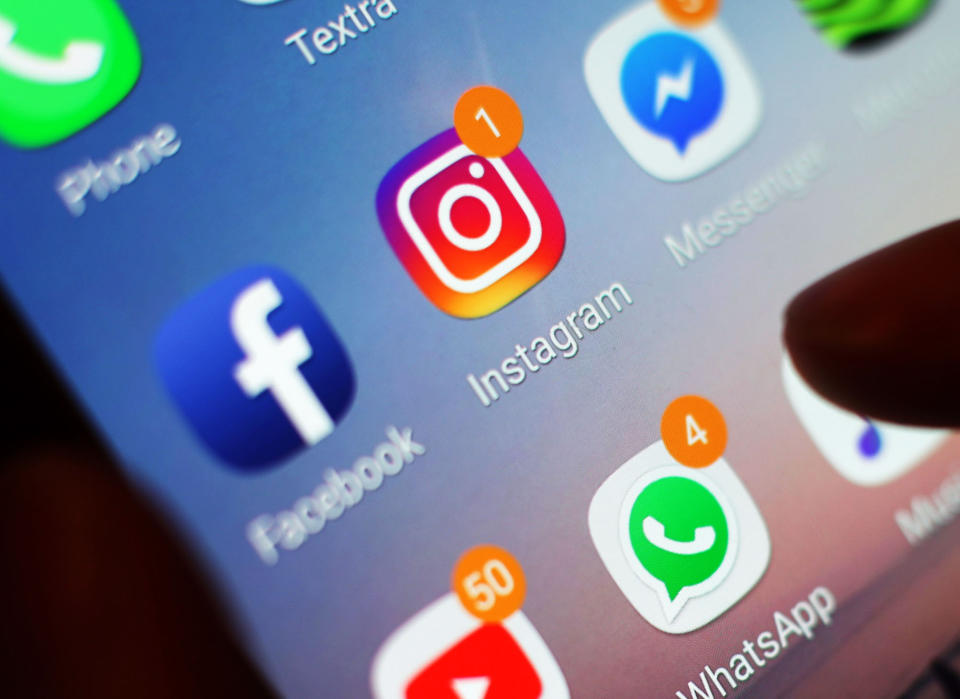Forget work-life balance, is it possible to find a device/no-device balance?

Since the smartphone was launched in the UK in 2008, devices have dominated our lives – on average, we now check our phones every 12 minutes.
Ten years ago, just 17% of people owned a smartphone – a figure that has now reached 78%, and 95% among 16-24 year-olds, according to a 2018 report.
We’re constantly developing faster, smarter phones, tablets and laptops which allow us to check emails, social media platforms and more in seconds. Conversely, though, a growing number of people are beginning to cut back on the time they spend on their phones.
New phones now feature screen-tracking features, which tell you the frequency with which you’re checking your phone and the amount of time you spend in certain apps. Even tech bosses are limiting the amount of time their kids are spending on their smartphones and tablets. When New York Times reporter Nick Bilton interviewed Apple co-founder Steve Jobs in 2010, he asked whether his kids loved the iPads. “They haven’t used it,” he answered. “We limit how much technology our kids use at home.”
So should we all be cutting back – and is it ever possible to find a happy medium?
Numerous studies have shown prolonged use of smartphones negatively affects our health. Studies have shown using the devices can lead to poor sleep quality, and sleep deprivation puts us at higher risk of physical and mental health problems. The more time young adults spend on social media, the more likely they are to be depressed or lonely.
Rarely a minute goes by without us scrolling through Twitter, Facebook or Instagram, and our 24/7 work culture means most of us are guilty of answering emails late at night, or before we get out of bed in the morning. Not only do we struggle to switch off, but we’re under constant pressure to improve ourselves. Seeing a colleague post about a promotion is yet another push to answer more emails.
“The lack of boundaries with screen time is a significant challenge. There is no off button and there are no clearly defined expectations,” says Dr Angharad Rudkin, a clinical psychologist at the University of Southampton. “The ‘always on’ culture creates anxiety around missing out or not doing our best, and we then set ourselves impossible standards.
“Because we are constantly being bombarded by highly manufactured information about others, we are also constantly comparing ourselves with an unrealistic norm, which can lead to feelings of anxiety and sadness.”
Having spent so much time on our phones, we’re also having to re-learn how to relax. “By constantly being on a screen we aren’t taking into account really important contributors to our well-being, namely relaxation time, just sitting and being and enjoying being in the moment,” says Rudkin.
“Mindfulness is a popular and effective way of improving our mental health, and there is no surprise that we now have to train our brain to be more in the moment rather than take a photo of our food or record a video of the bird song.”
For many of us, it’s not really possible to ditch our phones and go cold turkey without losing our jobs – but there are things we can do to limit the time we spend on them.
Setting clear boundaries can help stop emails and messages taking over our day. “Create clearly defined screen-free times and leave your phone/laptop in a different room at this time. To start with, this will feel quite difficult but will be easier in time,” Rudkin says. Asking your friends and family to do the same – occasionally, mind, otherwise it’s a tall order – can help too.
If you don’t need to answer an urgent email, but just find yourself opening Gmail or other apps mindlessly, then ask yourself if doing so is going to make you feel better or not. “If it isn’t then make an active decision to not look,” Rudkin adds.
It’s also not just up to you as an individual, either. Employers have to take responsibility and allow their staff a reasonable amount of time away from work. “If your employer expects you to answer emails 24 hours a day, speak to your manager about the importance of work-free time. The more you answer emails in the evening, the more you will be expected to,” Rudkin says.
“Ask yourself what you want to look back at your life and be glad you did – spending hours on your emails or sitting chatting with friends, walking the dog or having fun with your kids.”

 Yahoo Finance
Yahoo Finance 